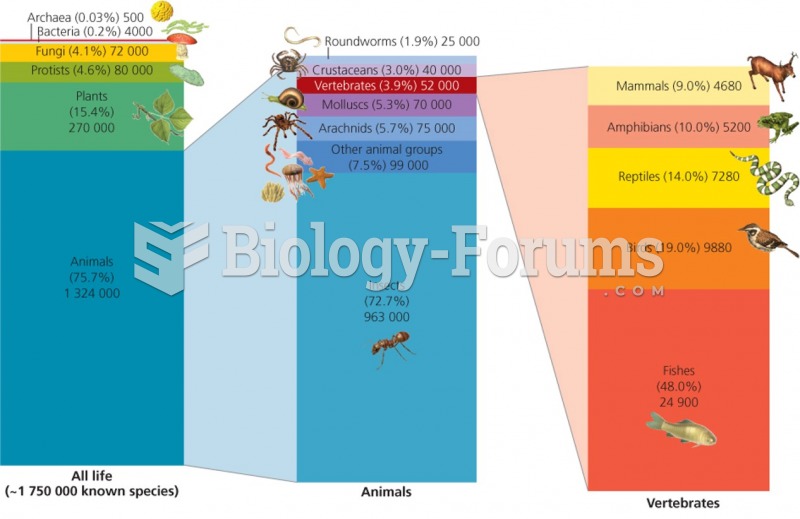|
|
|
If all the neurons in the human body were lined up, they would stretch more than 600 miles.
Approximately 25% of all reported medication errors result from some kind of name confusion.
The average human gut is home to perhaps 500 to 1,000 different species of bacteria.
IgA antibodies protect body surfaces exposed to outside foreign substances. IgG antibodies are found in all body fluids. IgM antibodies are the first type of antibody made in response to an infection. IgE antibody levels are often high in people with allergies. IgD antibodies are found in tissues lining the abdomen and chest.
The term bacteria was devised in the 19th century by German biologist Ferdinand Cohn. He based it on the Greek word "bakterion" meaning a small rod or staff. Cohn is considered to be the father of modern bacteriology.







